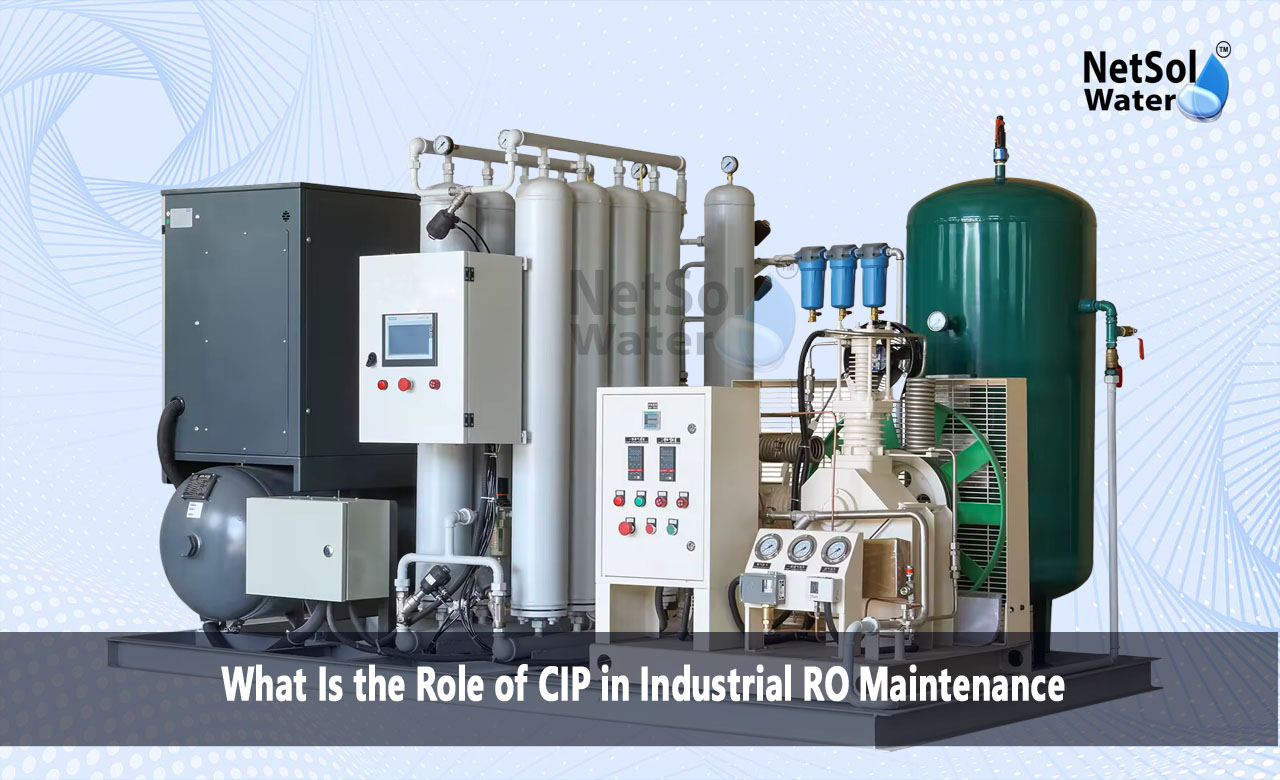What Is the Role of CIP (Clean-in-Place) in Industrial RO Maintenance?
Industrial RO plants play a major role to play by purifying large volumes of water for industrial use for the purposes of manufacturing, food and beverage processing, textile manufacturing, and making pharmaceuticals. RO plants go to great efforts to remove impurities, salt, and other contaminants from water to produce high-quality product for many industrial uses. Membranes in RO plants gradually foul with scale, biofilm, and organic deposits over time. This is where Clean-in-Place (CIP) systems enter the scene.
The role of CIP in industrial RO maintenance are important to ensuring that RO plants remain long-lived, efficient, and performing to standard.
What Is a CIP System?
A CIP system is a method for cleaning inner surfaces of RO membranes, filters, and pipes without tearing equipment down. It is based on the integration of chemical solutions, temperature, and flow rate to strip fouling material responsible for decreasing membrane performance. The whole process is computer-controlled in an attempt to reduce downtime and human involvement.
The role of CIP in industrial RO maintenance is to keep the productivity of the membranes and prevent them from irreversible fouling by scale or biological fouling.
Why CIP is needed for Industrial RO Plants?
RO membranes are delicate equipment. If fouled, the system needs high pressure to force water through, thereby consuming more energy and recovering less water. Some of the fouling types include:
· Scaling from calcium, magnesium, and other salts
· Biofouling by bacteria or by microbial growth
· Organic fouling by oils, grease, or other industrial wastewaters
· Colloidal fouling by suspended solids and clay
The role of CIP in industrial RO maintenance is to flush out these unwanted substances from time to time, restoring membrane performance and system life.
How a CIP Process Operates?
The CIP process normally entails several steps:
· Flushing: Flushes loose debris using low-pressure water.
· Alkaline Cleaning: Degrades and dissolves organic contaminants, oils, and biofilm using alkaline chemicals.
· Acid Cleaning: Solves scale and mineral deposits using acid chemicals.
· Rinsing: Removes cleaning chemicals to avoid membrane damage.
· System Re-start: System is made functional after completion of checks.
These processes are conveniently tracked by flow meters, pH sensors, and temperature controllers to maintain efficiency. The effectiveness of CIP in RO maintenance in industry is only effective if each step is performed accurately according to the kind of fouling and types of membranes.
When to Conduct CIP?
CIP is not a regular process, but extremely vital when some performances reduction is witnessed:
· Sudden or gradual permeate flow loss
· Rise in differential pressure over membranes
· Reduction of product water quality (increase in TDS)
· Increase in energy consumption
Most of the lost performance can be recovered through a prompt CIP process. Delaying it for so long could result in irreparable damage to the membranes.
Advantages of CIP in RO Maintenance
Understand the role of CIP in industrial RO maintenance also means familiarization with its extensive list of benefits:
· Cost Savings: Regular cleaning obviates the necessity for frequent replacement of the membrane.
· Efficiency: Maintains high water recovery and energy efficiency.
· Longevity: Extends the life of the entire RO plant.
· Compliance: Allows compliance with water quality and operational standards.
· Downtime Reduction: Automated CIP processes reduce operational disruption.
Best Practices to Ensure Successful CIP
For optimum performance, follow these practices
· Use the Right Chemicals: The cleaning chemicals must be chosen depending upon the type of fouling.
· Control CIP Frequency: Excessive cleaning will destroy membranes; insufficient cleaning leads to fouling development.
· Automate the Process: Automated CIP will ensure consistency and reduce human mistake.
· Record and Track CIP Cycles: Record keeping for auditing, quality control.
Such disciplines provide utmost contribution of CIP (Clean-in-Place) to RO maintenance in industry for performance and reliability.
Conclusion
In general, the role of CIP in industrial RO maintenance is at the heart of any industrial RO system's health and function. By cleaning the membranes without ever taking the equipment apart, CIP provides less downtime, reduced operating costs, and extended membrane life. Done properly and at the right interval, CIP keeps your RO plantoperating like new regardless of how extreme your industry's water requirements are.
In today's competitive and sustainable society, having your water treatment equipment in mint condition is no longer the best idea—now it's necessary. And CIP is one of the best ways to achieve that goal.
Do you need an advice or assistance on selecting the best water and waste water treatment unit? We have solutions for all your problems!
Let us know your problem, our experts will make sure that it goes away.
For an assistance or related query,
Call on +91-9650608473 Or write us at enquiry@netsolwater.com



